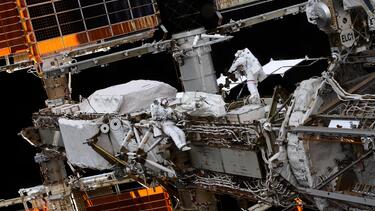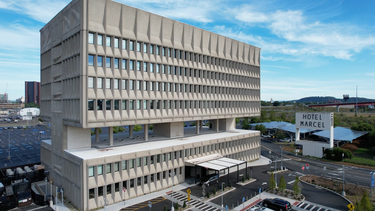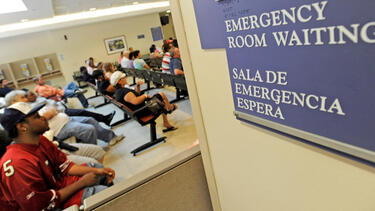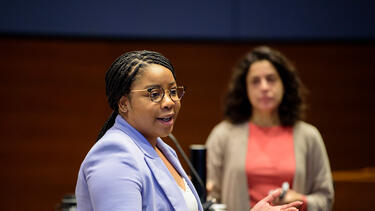Alumni
Renewable Energy Is Easier Than Ever to Build—and Harder to Talk About
Advances in technology and a maturing development ecosystem have made renewable energy more economical, less risky, and increasingly rewarding for landowners, says Reid Buckley ’89, a partner at Orion Renewable Energy Group. But it has also become more politicized.

A Whole-Person Approach to Mental Health
Christina Mainelli ’11, CEO of Quartet Health, explains how the company solves bottlenecks around access, quality, and fragmentation to deliver whole person care.

Assembling an Economy in Space
A mix of public and private investments are positioning the space economy for a period of growth and innovation, says Sven Eenmaa ’98, director of investment and economic analysis at the International Space Station U.S. National Laboratory.

What Does It Take to Build a Zero-Emission Hotel?
When real-estate developer Bruce Becker ’85 set out to convert New Haven’s historic, Marcel Breuer-designed Pirelli Building into the boutique Hotel Marcel, he realized that exclusively using renewable sources of energy would make the project more financially sustainable.

Saying ‘Yes’ to Solve the Affordable Housing Crisis
A lack of affordable housing is exacerbating homelessness and hobbling economic competitiveness, yet efforts to build new housing regularly meet NIMBY pushback. Three Yale SOM alumni tackle the tough challenge of getting to yes.

How a Time Out Can Help Address Bias
The Bias Time Out, developed by a team including Gina Calder ’22 and Dr. Cecelia Calhoun ’21, helps healthcare teams spot and address bias in real time.

For Companies Eyeing AI, the Question Is ‘When, Not If’
Generative AI may well be transformative, but firms will need to make judgments on whether the costs, challenges, and risks of being a first mover makes sense.

In the Emergency Department, Patients from Marginalized Groups Are More Likely to be Bypassed in the Queue
In a busy hospital emergency department, White people who speak English and have private insurance are more likely to jump the line and get seen first, according to new research from Professors Lesley Meng and Edieal Pinker and Dr. Rohit Sangal ’21 of Yale New Haven Hospital.

Forms of Wisdom: Lessons from Public Health Entrepreneurs
Four women who are using entrepreneurial tools to achieve public health goals visited Teresa Chahine’s podcast, Impact & Innovation, where they told their stories and shared what they’ve learned about connecting with a community to make a difference.

Imagining Future-Ready Infrastructure
Our aging infrastructure isn’t ready for climate change. David Gilford ’07 explains how new resilient, technology-enabled infrastructure can help us thrive in an uncertain future.

The Art and Science of Delivering Impact
To take on the problems associated with poverty in New York City, Emary Aronson ’97, chief knowledge officer of the Robin Hood Foundation, takes a data-driven and heart-led approach. She describes how the organization has focused on outcomes and been able to pivot quickly to lead emergency relief efforts.
